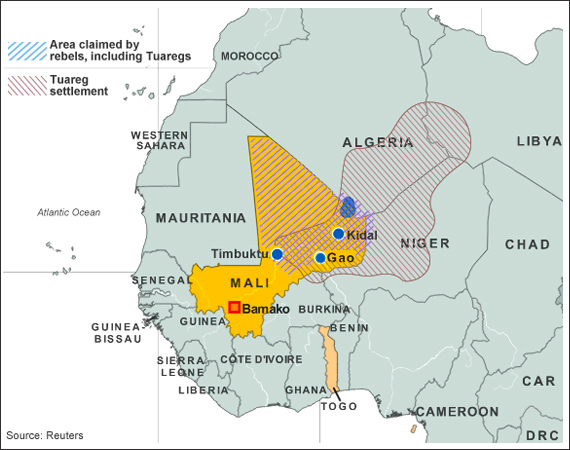
Secretary of State Hillary Clinton, right foreground, meets with her assistants Jan. 7, 2013 after returning to work following treatment for a blood clot near her brain. Photo: State Department
Clinton Hopes For Strong Finish After Disappointing December
This is not how Hillary Clinton imagined ending her run as secretary of state.
After a month of recovering from a stomach virus, a concussion, and a blood clot between her brain and skull, she returns to work this week with senior State Department officials already prepping Massachusetts Senator John Kerry to replace her.
After 112 countries of face-to-face diplomacy over the past four years, Clinton is being kept close to home by doctors monitoring blood thinners dissolving the clot behind her right ear.
With the Senate reconvening mid-January and fellow lawmakers expected to confirm Kerry quickly, Team Clinton has little time to regain the valedictory momentum it was building in public policy appearances designed to define her diplomatic legacy and keep boosters eager for more – possibly a run for the presidency in 2016.
Before sickness forced her to cancel a trip to North Africa and the Middle East in early December, that campaign hit its stride with a gala dinner for Brookings’ Saban Center for Middle East Policy.
An effusive, highly-produced video tribute featured Clinton embracing Aung San Suu Kyi, looking across the Korean demilitarized zone, and rallying NATO action against Moammar Gadhafi.
Praise from her peers
There were testimonials from Arizona Senator John McCain: “Her public service…has endeared her to millions and millions of people all over the world;” Israeli Prime Minister Benjamin Netanyahu: “I don’t think we’ve heard the last of Hillary Clinton;” and former British Prime Minister Tony Blair: “I just have an instinct the best is yet to come.”
“In all those foreign trips, despite all that jet-lag, you’ve represented the very best of America,” President Obama chimed in with his own video. “Through it all, I’ve relied on the shinning qualities that have defined your life: your conviction, your optimism, your belief that America can and must be a force for good in the world.”
Clinton was clearly pleased.

Massachusetts Senator John Kerry smiles Dec. 21, 2012, as he is nominated by President Obama to succeed Hillary Clinton as U.S. secretary of state. Photo: AP
“I am somewhat overwhelmed, but I’m obviously thinking I should sit down,” she told the Brookings audience to much laughter. “I prepared some remarks for tonight, but then I thought maybe we could just watch that video a few more times.”
“There wasn’t much doubt about the ultimate direction,” The New Yorker’s David Remnick writes of that night. “2007-8 was but a memory and 2016 was within sight. She’s running.”
All the more reason she find a way to finish strong. But Clinton advisors working to get her back on track must first get her past the Benghazi disaster, in which the U.S. ambassador to Libya and three other Americans were killed by gunmen last September.
Deputies Bill Burns and Tom Nides took the brunt of Congressional criticism over an independent review report concluding that managerial failures at the State Department had undermined security at the Libyan diplomatic facilities.
Republicans have questions
Clinton was excused from congressional testimony after fainting at home, but Republicans expect her to answer their questions now that she has recovered.

Is a presidential run in 2016 in the cards for Secretary of State Hillary Clinton, shown here at a news conference last November? Photo: AP
“It’s imperative that she come before this committee,” said Tennessee Senator Bob Corker. “I think it would be really a shame to turn the page on this and go to a new regime without her being here.”
If she does testify about Benghazi, she could face tough questions from Senator Marco Rubio, a Florida Republican who is considered a likely presidential candidate as well in 2016. Rubio is on record questioning how high State’s managerial failures went, saying he is puzzled by the review report placing so much blame on lower-level assistant secretaries.
“Why I find that quite puzzling is that because Benghazi, and Libya in general, is not some remote outpost. It’s not Luxembourg,” Rubio said. “I mean this is a country that we were involved in militarily not so long ago in a high-profile intervention.”
That intervention, in March of 2011, looked like a big success for the Obama administration, something that someone closely associated with might use in a subsequent presidential campaign.
Despite the Benghazi issue and current confusion atop the new government in Tripoli, Cato Institute analyst Malou Innocent believes Clinton’s tenure at State helps her politically.
“As foreign policy wonks in Washington, D.C., we can sort of dissect here and there,” Innocent says. “But for the majority of the American people, they are going to look at her resume, which has been stunning. So certainly that will help her in 2016.”




 Concerns in Washington
Concerns in Washington












